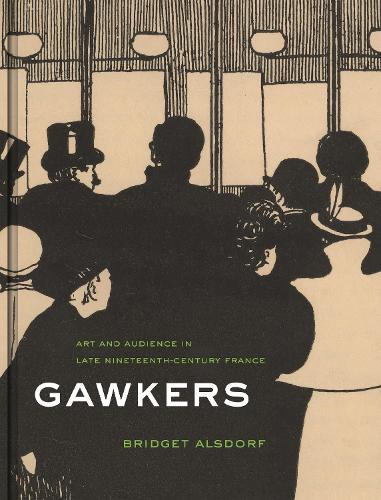
Gawkers: Art and Audience in Late Nineteenth-Century France
(Hardback)
Publishing Details
Gawkers: Art and Audience in Late Nineteenth-Century France
By (Author) Bridget Alsdorf
Princeton University Press
Princeton University Press
1st August 2022
United States
Classifications
Tertiary Education
Non Fiction
709.4409034
Physical Properties
Hardback
296
Width 203mm, Height 267mm
Description
How the urban spectator became the archetypal modern viewer and a central subject in late nineteenth-century French art.
Gawkers explores how artists and writers in late nineteenth-century Paris represented the seductions, horrors, and banalities of street life through the eyes of curious viewers known as badauds. In contrast to the singular and aloof bourgeois flneur, badauds were passive, collective, instinctive, and highly impressionable. Above all, they were visual, captivated by the sights of everyday life. Beautifully illustrated and drawing on a wealth of new research, Gawkers excavates badauds as a subject of deep significance in late nineteenth-century French culture, as a motif in works of art, and as a conflicted model of the modern viewer.
Bridget Alsdorf examines the work of painters, printmakers, and filmmakers who made badauds their artistic subject, including Flix Vallotton, Pierre Bonnard, Henri de Toulouse-Lautrec, Honor Daumier, Edgar Degas, Jean-Lon Grme, Eugne Carrire, Charles Angrand, and Auguste and Louise Lumire. From morally and intellectually empty to sensitive, empathetic, and humane, the gawkers these artists portrayed cut across social categories. They invite the viewers identification, even as they appear to threaten social responsibility and the integrity of art.
Delving into the ubiquity of a figure that has largely eluded attention, idling on the margins of culture and current events, Gawkers traces the emergence of social and aesthetic problems that are still with us today.
Reviews
"A rich, dense, wide-ranging survey whose central figure is the Swiss artist Flix Vallotton. . . . Alsdorf is an admirable close reader of images, clever at picking out, in a mass of bodies, a tiny figure who is doing nothing more than staring back at us, as if, across the centuries, he has spotted us gawking at him and is gawking back."---Julian Barnes, New York Review of Books
"Handsomely produced, exhaustively researched, Gawkers combines elegant prose with a knowingness that mimics the sly humour of its key figures. . . and penetrating visual analyses of their works"---Lesley Stevenson, World of Interiors
"Alsdorf acts as a knowledgeable guide to Parisian art of the nineteenth century. . . . Gawkers is recommended for enthusiasts of art of this period, as it effectively supplies a missing link for non-francophones, introducing them to the complex social signals and commentary that is present in the art we so often take for granted."---Alexander Adams, Alexander Adams Art
"Bridget Alsdorf is a wonderfully clear writer. . . . Gawkers is engaging, thoroughly researched, and generously illustrated."---Heather Saunders, ARLIS/NA Reviews
"The crowd as Alsdorf envisions it turns out to be multifaceted, variously dense, and dependent on an unprecedented relationship to the spectacular. For those who follow developments in the field of the history of art in the 19th century, Alsdorf's voice has gradually revealed itself, original, elegant, knowing how to combine descriptive precision and an overall vision of the dimensions of a period. Following her masterful analysis of the portraits of Fantin-Latour from her previous book (Fellow Men, 2013) is this fascinating contribution, with tight argumentation and marvelous illustrations."---Julien Zanetta, Studi Francesi
Author Bio
Bridget Alsdorf is associate professor in the Department of Art and Archaeology at Princeton University. She is the author of Fellow Men: Fantin-Latour and the Problem of the Group in Nineteenth-Century French Painting (Princeton).
